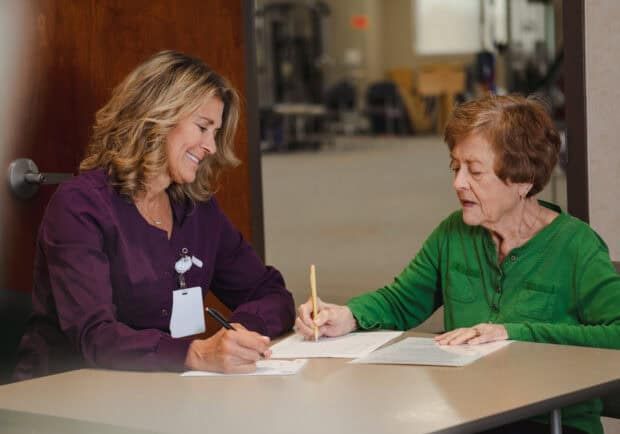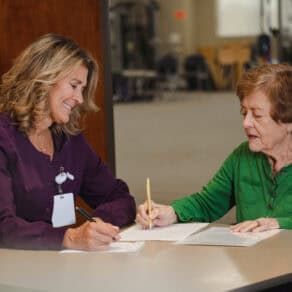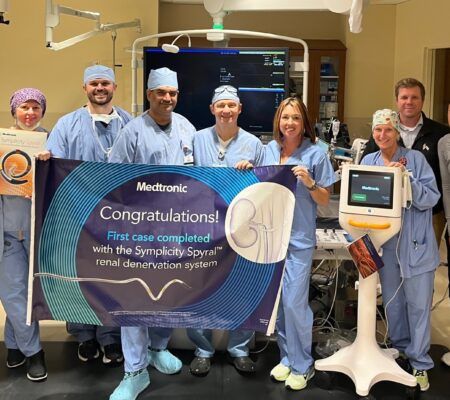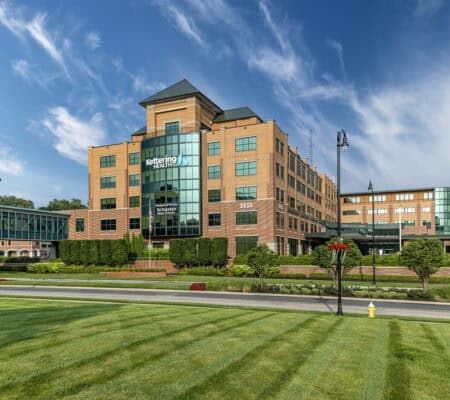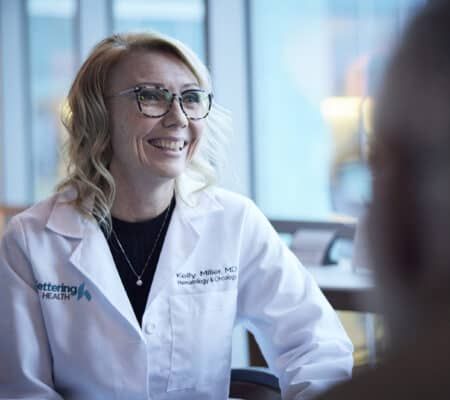Our Approach to Multiple Sclerosis Care
Though no cure exists for multiple sclerosis, the NeuroRehab and Balance Center can help you manage symptoms and maintain your quality of life with the help of occupational therapists, physical therapists, and speech-language pathologists. A case manager and exercise physiologist are also available to help you recover.
Occupational Therapists
An occupational therapist can help with
- Daily activities: Your therapist will help you regain the ability to perform daily tasks, such as eating,bathing, and dressing. They can also train caregivers on how best to assist you. A driving rehab specialist can help you return to driving.
- Hand and upper extremity strengthening: With exercises and adaptive equipment by Saebo© and Bioness©, your therapist will help you recover hand and upper extremity function.
- Safety recommendations: You may benefit from adaptive equipment or home safety modifications. Our therapists can recommend the right equipment for you.
Physical Therapists
A physical therapist can help with
- Strength and gait training: Your therapist can help you regain strength and range of motion with exercise. High-intensity gait training can be utilized to promote neuroplasticity and recovery. Specialized equipment such as the Rifton Tram©, Body Balance Vest, Bioness©, as well bracing can assist with walking.
- Dizziness: Certified vestibular therapists can address any dizziness and instability to reduce your risk of falling.
- Fatigue: Your therapist will teach you how to conserve energy and manage fatigue during recovery.
Speech-language Pathologists
A speech-language pathologist can help with
- Communication problems: Your speech-language pathologist can address any issues with talking or language comprehension. VitalStim© neuromuscular electrical stimulation can help with swallowing.
- Cognitive retraining: Your speech-language pathologist will help you improve your attention, memory, problem-solving, and reasoning abilities.
- Accessibility recommendations: You may benefit from speech-generating or alternative speech devices, and your speech-language pathologist can help you determine the best option.

